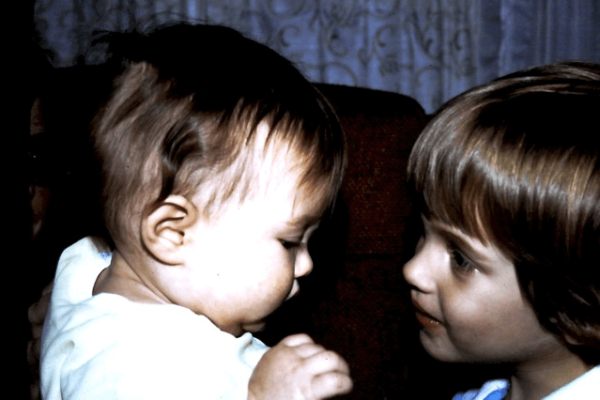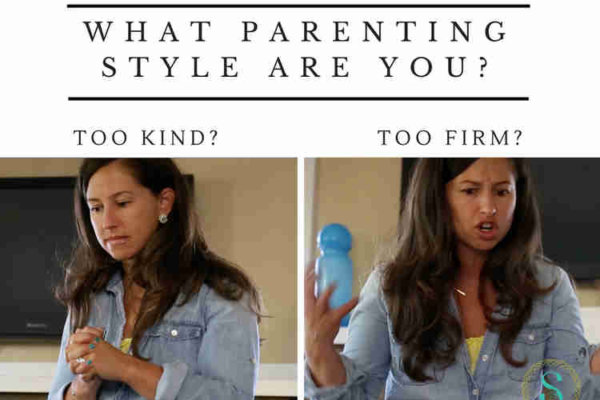Positive Discipline Family Meetings
On more than one occasion, you will find my husband rescuing somebody from a seemingly crazy person.
That crazy person would be me.
It is HARD. Whenever I get into a casual conversation about parenting I find myself wanting to offer what to me, has been the biggest game-changer and secret sauce of the last 7 years of our family life, family meetings.

Let your kids take notes or facilitate.
While the concept of a family meeting is nothing new, the way that it was presented to me at my Positive Discipline education trainings revolutionized my world. It was so simple and took so little time. It required practice, weekly practice- for months, but is now foundational.
Our first family meeting began when my baby was 6 months old. She sat in the high chair while my husband and I awkwardly exchanged compliments and then planned a “family fun time”- a time when the three of us did something altogether that did not cost any money. We put it on the calendar and then high fived to end the meeting. The fifteen minutes weren’t even up. Our baby looked back and forth at us in awe. Meetings grew over time. As she learned sign language and sat in our laps during the opening compliments, she was able to sign “thank you” and was so happy to be participating.
We added an agenda that allowed my husband and I to problem-solve various things that came up during the week (babysitter scheduling, how to fit in working out, how are we going to pay for the new water pipes). As our baby became a toddler, an older sister, and then a preschooler, the agenda became driven by all members of the family. Jobs were added like a scribe, hostess, timer, meal planner, and facilitator. Agenda items ranged from:
- I don’t like the taste of the vitamins
- The girls are being rude to papa when it is his turn to read books at night
- The bath toys keep getting messed up
- Change of chores
- Girls want a snack before bed
- What to spend our “donate” part of allowance on
- I want a sleepover
- Twin beds or bunk beds
One of my favorite items on the agenda was when my preschool daughter became furious that her papa had cleaned her room.
I know, outrageous.
She was stomping around and went on a tirade about how she can’t find anything and how come her sister’s room wasn’t cleaned because “she can still find HER Doctor McStuffins kit but I can’t and it was in a special place,” etc. I calmly suggested she put it on the agenda. She marched right over, pulled out the composition book, and wrote a furious scribble that I then translated. Satisfied and redirected, the cloud lifted.
A couple of days later, our meeting commenced. We did our compliment circle (we all give each other a compliment, a “thank you for” or “I appreciate”), and then reviewed past “solutions” to agenda items from the last week. The facilitator went on to read the agenda item, while my daughter explained WHY it was a problem for her.
We turned to my husband who, surprisingly, went OFF. He told her, “My feelings are really hurt right now. I spent 30 minutes of MY time cleaning your room and it feels really ungrateful. Fine, I just won’t clean your room anymore.”
There was a pause.
My daughter piped up “Papa, I am sorry. We are looking for solutions here. Why can’t we clean up my room together so I know where everything is?” It was in that moment that I felt a wave of gratitude wash over me for all those weeks of starting early, for putting in the time, so that it had become a part of our culture and language:
In our family:
We solve problems
We are solution-focused.
It is okay to express your feelings.
We help each other.
We respect each other.
And that was it. My husband melted, and from then on, she took responsibility for cleaning up her room, with help, when asked.

A few years later, we had another breakthrough. For the first time, my daughter put on the agenda a problem she was having with a friend at school. I was elated. Not because of the issue (which was actually a big issue relating to body image and food and cruel words), but because she sees us as having her back.
Include grandparents in your family meetings, or others in your home.
She trusts that family meetings are a place to solve problems together, without judgment. She knew we would brainstorm, role play, and come up with a solution to try. She also knew that if she tried it and it didn’t work, she could come back for more ideas.
When I teach my 7 week Positive Discipline parent education class, we always start the very first night by listing the “gifts” we want our children to have when they are 25. There are always the usual suspects: responsibility, empathy, problem-solving skills, good communicator, healthy relationships, happy, etc. When I introduce family meetings in the 3rd week, I ask, “what skills could our children learn through family meetings?” The list is almost identical.
So how big are family meetings? Big. They are the juicy practice that becomes the fabric of your family. It doesn’t matter how old your children are now.
It is never too early and never too late. Plant those seeds today!
Ready to get started?
Step one: Set the timer for 15 minutes
Step two: Compliments (each person gives one compliment to every family member)
Step three: Review past agenda items and their solutions
Step four: New agenda items, brainstorming solutions
Step five: Review the calendar for the week
Step six: Plan family fun time (all together, consensus)
Step seven: When the timer goes off, close with a high five or any other connecting way (hugs, song, game). The meeting is OVER! It is ok if you are mid compliment. Keep practicing each week and this will get more efficient.
For the first few weeks (or even months!) you may just want to stick to steps 1, 2, and 6. Set a strong foundation and routine before adding agenda items.
Want to get started on family meetings? Join our online community! Experience family meetings in our How to Grow Remarkable Kids online course.





Comments
The Wheel of Choice can be invaluable in managing sibling conflicts, providing children with alternative strategies for solving problems on their own such as finding a win-win solution, making a deal or a trade, taking turns, or adding it to the family meeting agenda.
kids care